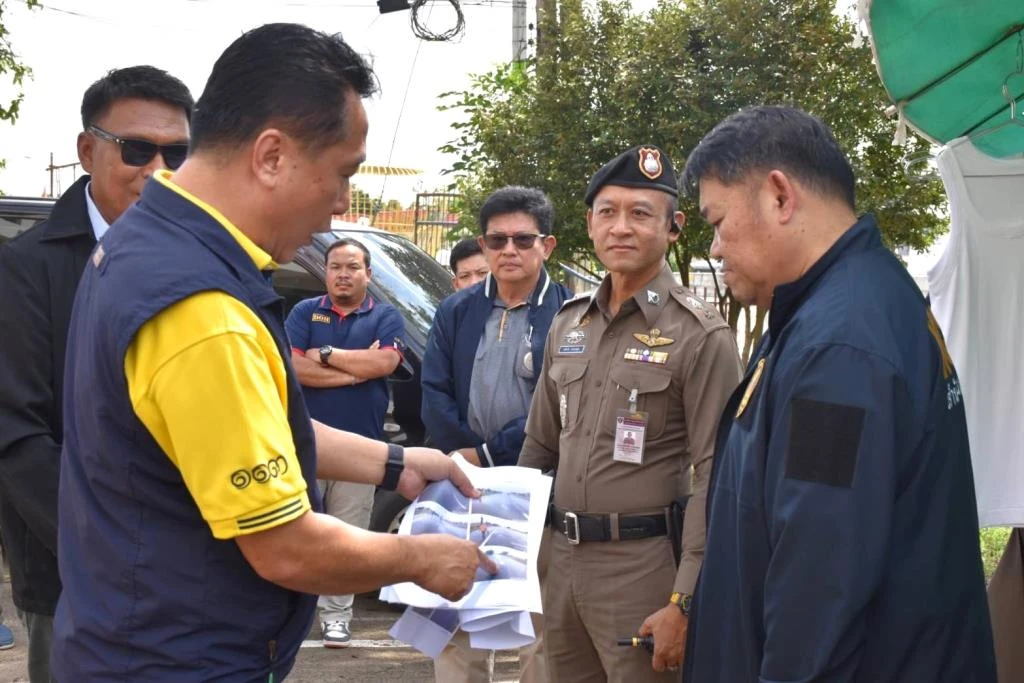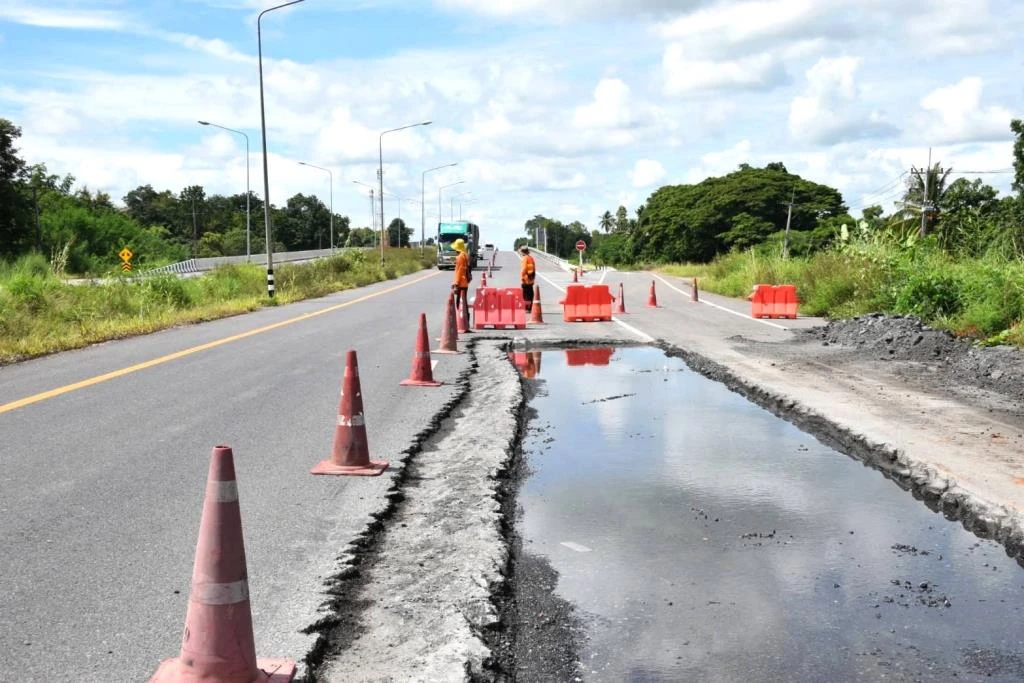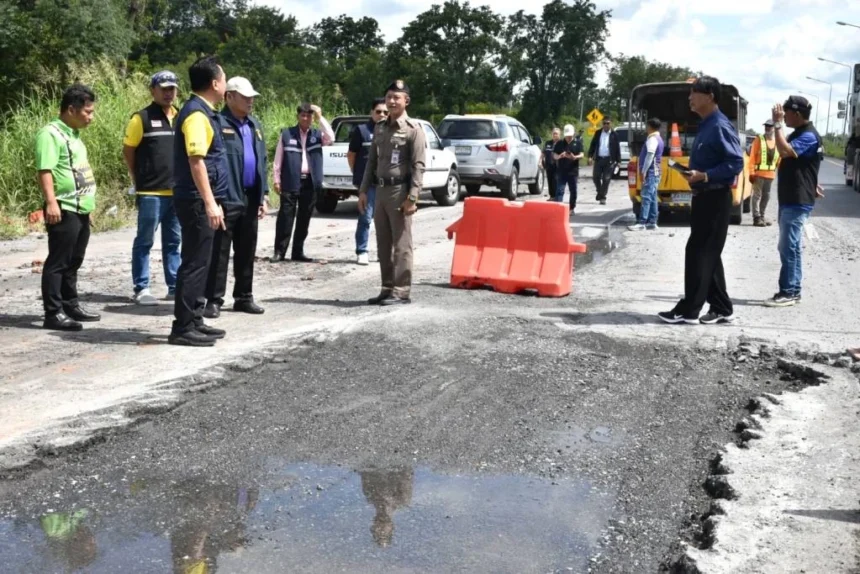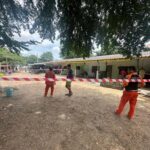PHICHIT – The National Anti-Corruption Commission (NACC) office has inspected Highway 11 after complaints that a 1.4 billion baht upgrade has fallen apart in months. The office pressed the Phichit Highway District to order immediate repairs under the contract warranty.
The project covers Highway 11, from Buri to Sak Lek, section Tap Khlo to Sak Lek. The length is 30.900 kilometres, four lanes, special standard. The contract ran from 25 September 2020 to 14 June 2025, with handover on 20 June 2025.
Waranpong Intamong, director of the National Anti-Corruption Commission (NACC) Phichit office, joined the STRONG anti‑corruption club in Tap Khlo and Thawatchai Muenhong, director of the Phichit Highway District, to survey the route that links to the North.
Damage was found between Wang Sai Phun and Khao Sai districts. The road has sunk and broken into potholes, small and large, at many spots. Vehicle accidents have already occurred, causing the police in Wang Sai Phun to set out traffic signs to warn drivers.

Mr. Thawatchai said work began in 2020, then the contract was extended to 2025 due to COVID-19. Heavy trucks used the route during construction, which led to cracking. Rain has also seeped into the base. The mix includes crushed rock, so water weakens the surface in the wet season.
The Highway District has notified the contractor to fix the defects. Crews have started patching at some points as a short‑term step during the rains to cut accident risk. More warning signs and lights will be installed at all damaged sites.
In about ten days, machinery will move in to resurface the carriageway. The goal is a smooth finish that matches the old level at every problem point, in line with engineering standards.
The National Anti-Corruption Commission (NACC) in Phichit has ordered regular progress reports until all repairs are complete. If evidence of corruption emerges, the office will act under its powers.

Local people doubt the quality of materials and construction. They ask why the asphalt failed within months, leaving cracks and potholes. They also complain about tall weeds on the median, which block visibility and put drivers at risk.
Thailand’s road network underpins the economy, supporting tourism, freight, and city growth. The state keeps funding expressways, highways, and urban routes to cut jams and improve links, with a strong focus on Bangkok and holiday centres like Phuket.
For 2025, the government set aside over 136 billion baht, about 4 billion US dollars, for 223 transport projects. Fifty of these target roads, from major expressway extensions to schemes that ease traffic in key provinces.
Corruption remains a risk in road works and procurement. Common issues include bid rigging, embezzlement of budgets, kickbacks to contractors, and substandard materials. These practices have led to crashes and structural failures.
Transparency International’s 2023 Corruption Perceptions Index places Thailand 108th out of 180, with a score of 35 out of 100. Construction ranks as high risk, linked to opaque tenders and political influence.
The National Anti-Corruption Commission reports more than 700 active cases, many tied to infrastructure procurement. Want cleaner projects and safer roads? Strong oversight and open bidding are essential.














